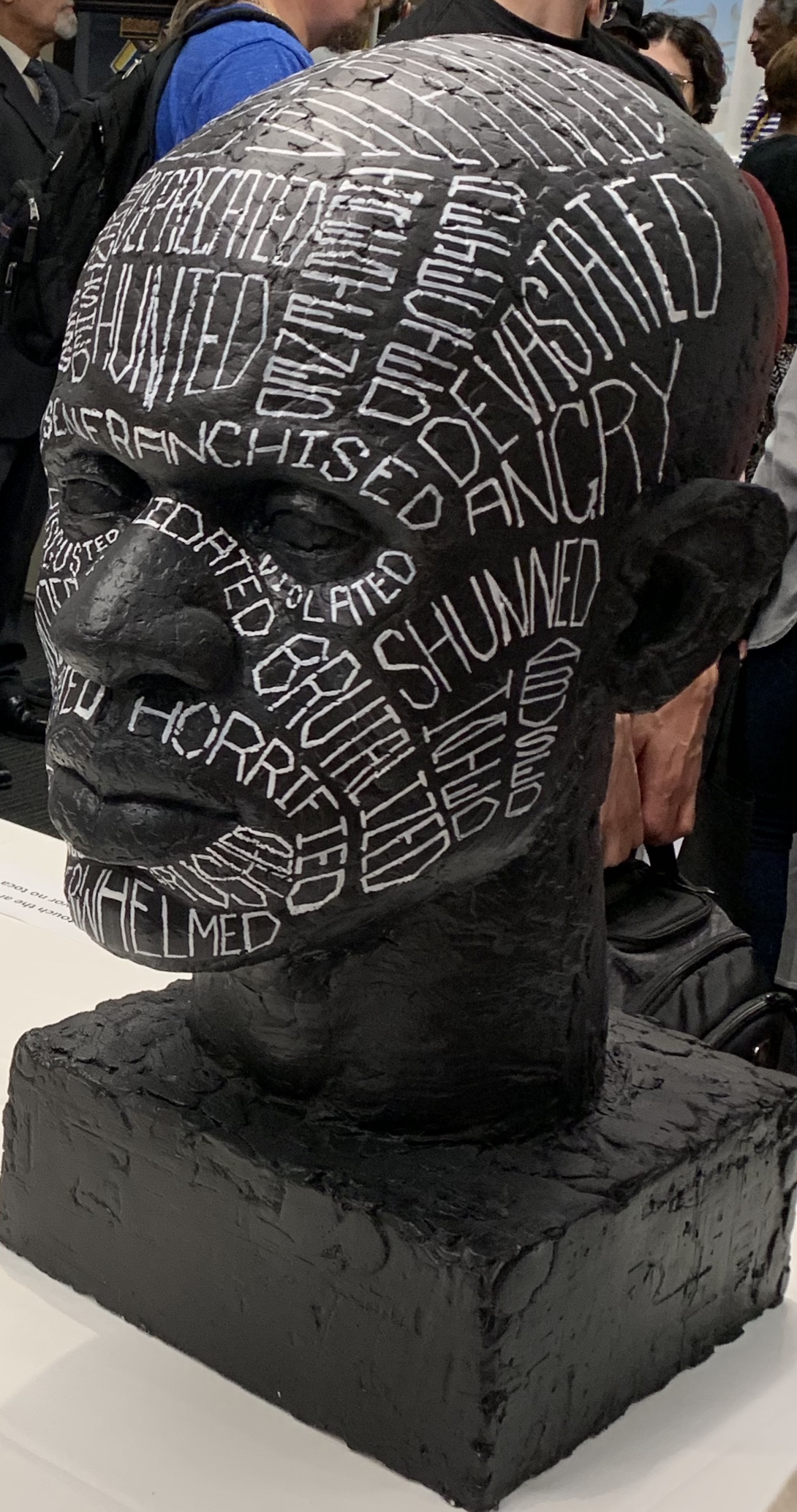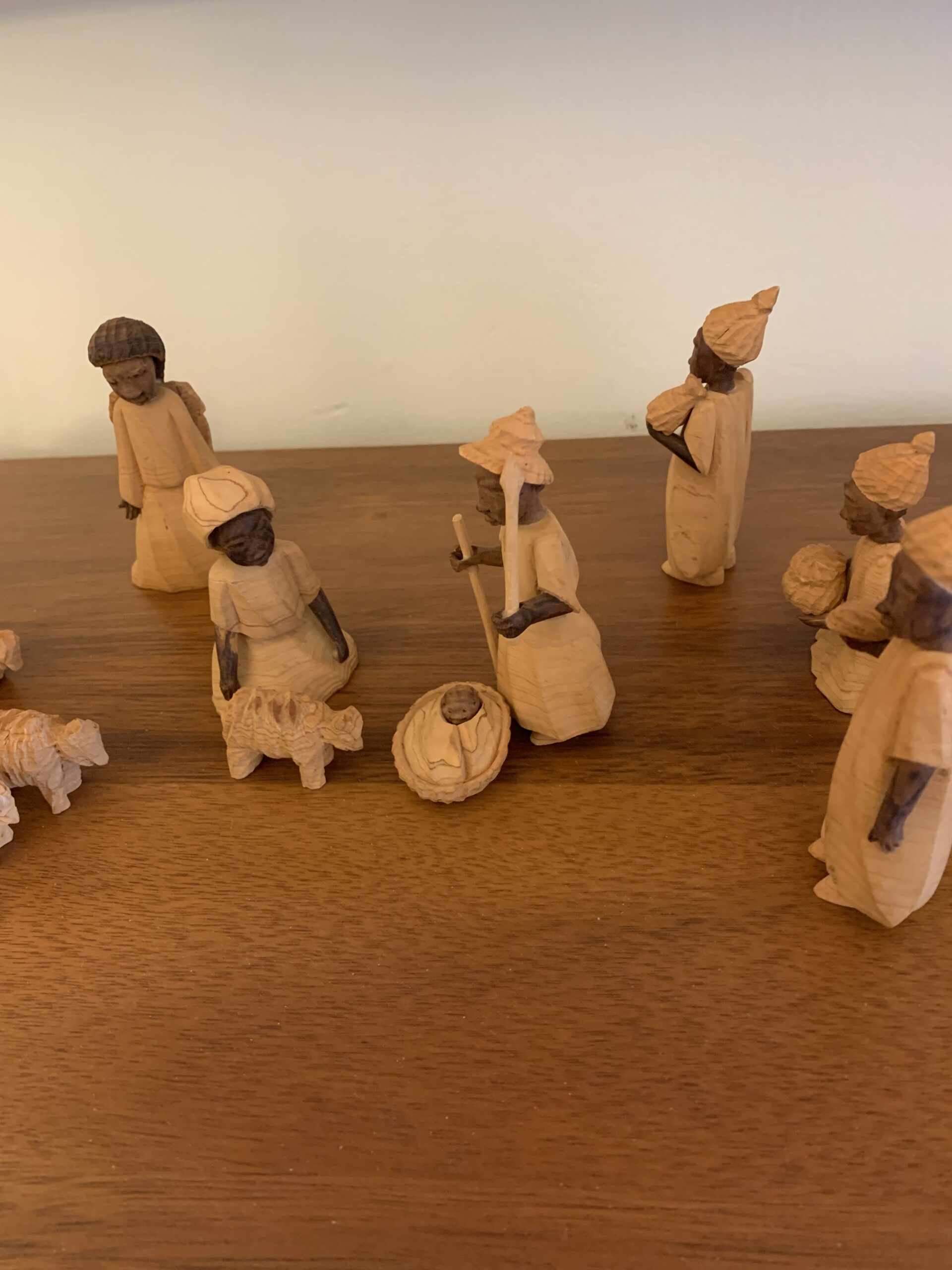
And he came to the disciples and found them sleeping. And he said to Peter, “So, could you not watch with me one hour? Matthew 26:40 ESV
Sorry, Jesus. I would have been there for the whole hour, but this is how my Good Friday morning went . . .
I am a lark, not an owl. So, when our church asked for volunteers for the night watch, a prayer vigil in our chapel between the Holy Thursday service commemorating Jesus’ last supper with his disciples, and the first Good Friday service at 8:00 AM, I volunteered for the 4-5 AM slot — a time I was sure no one else wanted.
I had set my alarm for 3:00 but woke at 2:30. I was a little anxious. The press has reported more random acts of violence in the subway in recent weeks. Someone is punching women in the face. A guy was pushed in front of a train last week. I chose my outerwear with some thought about how well it would repel a knife attack and whether my boots could provide a painful kick to an attacker’s shins. Nobody better mess with me. I’ve been working out!
Hey, in the Garden of Gethsemane, one of the disciples carried a shiv.
At 3:20, I didn’t find any muggers on the subway platform. I didn’t find anyone. It was the first time I ever saw it empty.
According to the MTA app, a train should have brought me to the church by 3:45, but it was now 18 minutes late.
After a few minutes, I saw a man slowly walk down the stairs to the platform. NYC is hard on people whose joints hurt. He got to the bottom and then sat down on the steps. That is a good way to get run over by people running to catch their train, but not at 3:30 AM.
After a few minutes, I walked past him to recheck the expected arrival time. As I did, I saw that he moved slowly because he was wearing a man’s white sneaker on his right foot and a woman’s low-heeled pump on his left. I suspect neither fit him well, but they matched the rest of his wardrobe.
I returned to checking my email but felt bad for the guy. Finally, I pulled a bill out of my wallet and handed it to him. He looked at me in surprise but didn’t take it. I thought at first he had no hands, but he had pulled his arms out of his sleeves to wrap them around his shivering body. He had to struggle to get a hand out to take my handout.
The amount I gave him might buy breakfast from one of the vendors who set up on the sidewalk outside the station. I don’t know. Inflation hits the poor even harder than people like me.
But it bought me an easier conscience. I’ve kept that price down.
I got on the train and started reading a story about how right-wing podcasters and politicians are attacking Catholic Charities for helping “illegals,” even though the director of one agency that has received threats against their staff says that everyone they help has papers. He agreed that there is a lot wrong with our immigration system. All the church is trying to do is pick up the pieces.
One center received about 75 threatening or obscene phone calls after Fox News targeted it. When the director said they were only trying to carry out Jesus’ command to welcome strangers, he was told “that the gospel was wrong.”
As I finished reading this, my watch told me that my 4:00 AM time to keep watch in the chapel had started, but my train was still crawling under the East River.
I looked at the other people in my car. There may have been twenty. I had no idea whether any of them were “legal.” What I did know is that my city can’t run without them. Four years ago, we were hailing the people who clean floors, deliver food to groceries, and empty bedpans in nursing homes as “essential workers.” They were “heroes.” Now, they were just people who would be late for work.
It was 4:00 AM. I said I would keep watch, so I started praying for the people around me, who were so tired that they slept sitting up.
I finally got to the church at 4:15. It is an architectural jewel on Park Avenue in midtown Manhattan. The 12,500-pipe organ is the largest in New York City, and the preaching is world-class.
I call it “Jacquie’s church.” When we retired, she got to pick. It is an Episcopal church whose rector calls it “the poorest rich church in Manhattan.”
Jacquie and I go there because of the line of hungry men, women, and kids that stretches around the block every morning and every evening, waiting to be fed at the church’s hunger program. We also go because everyone is welcome at worship regardless of who they are, what they look like, what they wear, and who they love.
I took a seat in the chapel.
The clergy had left a plate of bread and pitcher of wine on the altar from the previous evening’s communion service — “Christ’s offering for us,” as the communion liturgy says.
Last night, I read what Thomas Merton wrote in his journal after contemplating these symbols. He saw them flowing through and dissolving life’s compartments—the walls we build between sacred and secular, clean and unclean, holy and profane, Republican and Democrat, rich and poor. All things come together here.
After spending (almost) an hour “watching” with Jesus, my train ride home was faster. My neighborhood was beginning to wake up — or had not yet gone to bed. One of the things I learned when I started going to my gym before dawn is that the “ladies of the evening” work into the morning. I’ve quit pretending that I don’t see them. One young woman I often pass wished me a good morning and I told her to stay safe. Another tugged my sleeve and used what may be the only English word she knows to tell me what she had to offer. I wished her well, too.
It’s a tough world out there, and the nights are long.
I am grateful that Jacquie’s church has taught me this prayer:
Keep watch, dear Lord, with those who work, or watch, or weep this night, and give your angels charge over those who sleep. Tend the sick, Lord Christ; give rest to the weary; bless the dying, soothe the suffering, pity the afflicted, shield the joyous; and all for your love’s sake. Amen.







